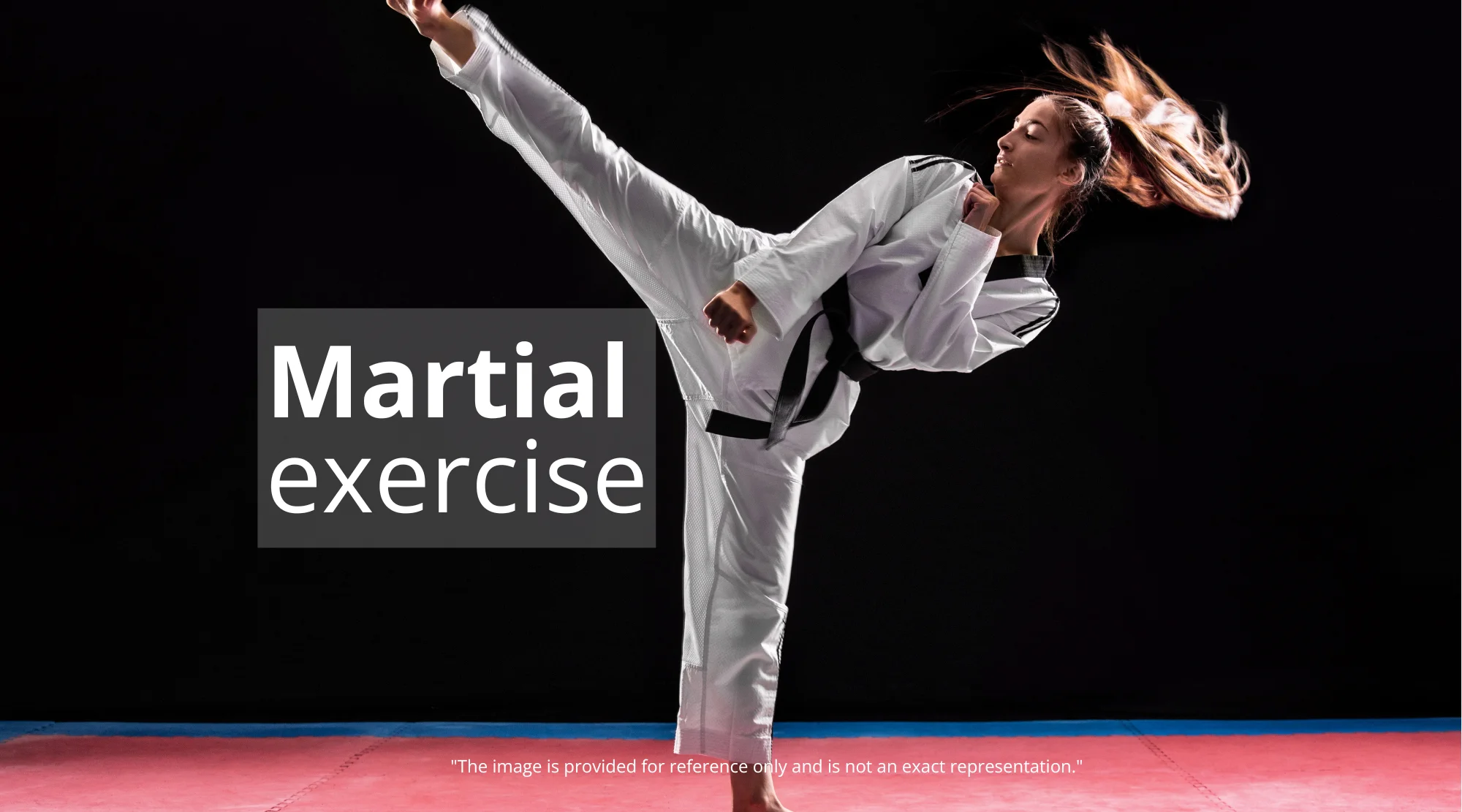The Power Within: Unveiling the Profound Benefits of Martial Arts for Holistic Well-being
Martial arts, often perceived as disciplines focused solely on physical combat, offer a vast array of benefits that extend far beyond self-defense. These ancient practices are increasingly recognized for their profound impact on both physical and mental health, fostering a holistic approach to well-being. From enhanced fitness and self-confidence to improved mental clarity and emotional resilience, martial arts provide a powerful pathway to a healthier and more balanced life. This article delves deep into the transformative potential of martial arts, exploring how these practices can empower individuals to unlock their inner strength and cultivate a profound sense of well-being.

Enhancing Physical Health Through Martial Arts
Martial arts are exceptional tools for physical conditioning, offering comprehensive workouts that improve various aspects of fitness. The dynamic movements, rapid changes in direction, and intense drills inherent in martial arts training provide a robust cardiovascular workout, elevating heart rates and burning calories efficiently. This, in turn, contributes to weight management and reduces the risk of heart disease and other lifestyle-related illnesses.
Furthermore, martial arts training builds strength, endurance, and flexibility. The constant practice of techniques, such as punches, kicks, and grappling, develops muscular strength throughout the body. Regular participation in these disciplines also enhances stamina and overall endurance, allowing individuals to engage in physical activities for longer periods without fatigue. Stretching and flexibility exercises, integral to many martial arts styles, improve range of motion, reduce the risk of injury, and promote better posture.
The benefits extend to improved coordination and balance, vital aspects of physical health often overlooked in other forms of exercise. Martial arts require precise movements and coordination, enhancing proprioception, or the body’s ability to sense its position in space. This increased awareness helps prevent falls and improves overall physical dexterity.
Cultivating Mental Fortitude and Emotional Resilience
The practice of martial arts is as much a mental exercise as a physical one. These disciplines foster mental discipline, concentration, and focus. The need to learn complex techniques, memorize sequences, and react quickly in sparring situations sharpens cognitive functions and improves mental acuity. The focus required during training translates into improved concentration in other areas of life, such as academics, work, and personal pursuits.
Martial arts also provide a valuable outlet for stress management. The physical exertion and focused concentration help to release pent-up tension and reduce feelings of anxiety and stress. The repetitive movements and structured environment of training can be meditative, promoting a sense of calm and inner peace. In a world that feels increasingly stressful, martial arts offer a refuge and a means of regaining emotional equilibrium.
Moreover, the challenges inherent in martial arts training build mental resilience and self-confidence. Overcoming obstacles, mastering new skills, and facing opponents in sparring situations fosters a sense of accomplishment and self-efficacy. Students learn to persevere through setbacks, develop a growth mindset, and embrace challenges as opportunities for growth. This builds confidence, empowering individuals to cope with stress and navigate life’s difficulties with greater ease.
Fostering Self-Defense Skills and Personal Safety
Beyond physical and mental benefits, martial arts are renowned for imparting effective self-defense skills. These skills equip individuals with the knowledge and techniques necessary to protect themselves in potentially dangerous situations. Learning self-defense empowers individuals with a sense of security, reducing feelings of vulnerability and increasing self-assurance.
Martial arts training emphasizes awareness of surroundings and risk assessment, which are essential components of self-defense. Students learn to identify potential threats, assess situations quickly, and make informed decisions about how to respond. This knowledge allows individuals to avoid dangerous situations and, if necessary, to defend themselves effectively. It is worth remembering the importance of staying safe, as highlighted in the Be Health Be Full article, “Protect Yourself: West Nile Virus Alert – Stay Safe From Mosquito Bites”:[https://befullbehealth.com/2025/protect-yourself-west-nile-virus-alert-stay-safe-from-mosquito-bites/]. It is essential to take appropriate precautions to mitigate potential health risks.
Self-defense training, although it can be empowering, also underscores the importance of de-escalation and conflict avoidance. Martial arts instructors often stress the importance of using self-defense techniques only as a last resort, encouraging students to prioritize verbal de-escalation and other strategies to avoid physical confrontation whenever possible.
Building Character and Instilling Positive Values
Martial arts schools often promote a culture of respect, discipline, and integrity, which is crucial for personal growth. Students learn to respect their instructors, training partners, and themselves. This respect extends to the rules of the dojo and the principles of the martial art itself.
Discipline is a cornerstone of martial arts training. Students learn to follow instructions, adhere to a training schedule, and push themselves to achieve their goals. This discipline translates into improved self-control, responsibility, and a strong work ethic in other areas of life.
Many martial arts also emphasize core values such as humility, honesty, and perseverance. Students learn to be humble, acknowledging their limitations and striving for continuous improvement. They are encouraged to be honest with themselves and others, and to persevere through challenges with determination and resolve.
The Social and Community Aspects of Martial Arts
Martial arts training often takes place in a community setting, fostering social connections and building a sense of camaraderie. Students train alongside each other, supporting each other and learning from each other’s experiences. This sense of community provides a supportive environment for personal growth and skill development.
The shared experience of training creates strong bonds between students, regardless of age, background, or physical ability. This sense of belonging can be particularly beneficial for individuals who may feel isolated or disconnected from their social circles. The encouragement and support from fellow practitioners can be motivating, helping students to stay committed to their training goals.
Additionally, martial arts schools often host social events, tournaments, and community outreach programs, further strengthening the sense of community and providing opportunities for students to interact with each other outside of the training environment.
Choosing the Right Martial Art for You
Selecting the right martial art is a personal decision that depends on individual preferences, goals, and physical capabilities. Many different styles are available, each with its unique focus and approach to training.
Some popular martial arts include:
- Karate: Known for its emphasis on striking techniques, including punches, kicks, and blocks.
- Taekwondo: Focuses on kicking techniques, agility, and speed.
- Judo: Emphasizes grappling, throws, and ground techniques.
- Jujitsu: A comprehensive martial art incorporating striking, grappling, and submissions.
- Aikido: Focuses on blending with an opponent’s energy and redirecting force.
- Boxing: A striking art that focuses on punches, footwork, and defensive maneuvers.
- Muay Thai: A striking art from Thailand that incorporates punches, kicks, knees, and elbows.
- Brazilian Jiu-Jitsu: Focuses on ground fighting, grappling, and submissions.
When choosing a martial art, it is important to consider your personal interests and goals. Do you prefer striking or grappling? Do you want to focus on self-defense or competition? Do you want a fast-paced, high-intensity workout or a more meditative practice? Researching different styles and visiting local schools will help you determine which one is the best fit for you. In the article “Garmin Metrics Decoded: Master Your Fitness with Training Status, VO2 Max & More” [https://befullbehealth.com/2025/garmin-metrics-decoded-master-your-fitness-with-training-status-vo2-max-more/], you will find useful tools to assess your fitness level.
The Path to Holistic Well-being Through Martial Arts
Martial arts offer a powerful path to holistic well-being, encompassing physical, mental, emotional, and social dimensions. By incorporating these practices into your life, you can experience a multitude of benefits, from improved physical fitness and self-defense skills to enhanced mental clarity, emotional resilience, and a stronger sense of community.
Regardless of your age, fitness level, or prior experience, there is a martial art that can suit your interests and needs. The journey of learning martial arts is a continuous one, filled with challenges, rewards, and opportunities for personal growth. By embracing these disciplines, you can unlock your inner strength, cultivate a deeper understanding of yourself, and embark on a transformative journey toward a healthier, more balanced, and fulfilling life. For those dealing with mental health challenges, such as anxiety or depression, consider exploring resources like the article on “Keto Diet for Depression: Can Ketogenic Eating Improve Your Mental Health?” [https://befullbehealth.com/2025/keto-diet-for-depression-can-ketogenic-eating-improve-your-mental-health/].
Summary: Embrace the Martial Arts Advantage
In conclusion, the benefits of martial arts extend far beyond the ability to defend oneself. They offer a comprehensive approach to well-being, encompassing physical fitness, mental resilience, emotional regulation, and the development of positive values. By embracing the disciplines of martial arts, individuals can cultivate a more balanced, confident, and fulfilling life. Whether you seek physical conditioning, self-defense skills, or a deeper understanding of yourself, the martial arts provide a proven path to unlock your full potential. Consider exploring the diverse world of martial arts and discover how these ancient practices can transform your life, one technique, one practice, one step at a time. Remember that prioritizing your health is an investment in your future. The Be Health Be Full blog offers many articles with advice on a balanced life. To delve deeper into this concept, I recommend reading “Unlocking Well-being: The Power of Sharing Your Health Story” [https://befullbehealth.com/2025/unlocking-well-being-the-power-of-sharing-your-health-story/].











Post Comment